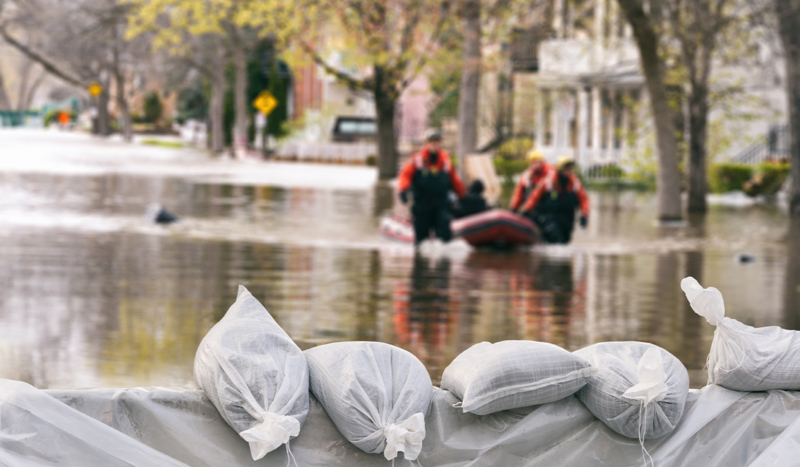
Adobe Stock
Editor’s note: this interview has been edited for brevity and clarity.
CV NEWS FEED // As flooding devastates parts of East Tennessee, Dr. John Kitsteiner, Medical Director of the Emergency Department at Greeneville Community Hospital, shared with CatholicVote about the challenges and the strong sense of community that have since emerged.
In the aftermath of severe flooding, which caused widespread damage and left much of the area without water, Greeneville residents and volunteers have come together in remarkable ways, Kitsteiner told CatholicVote in a September 30 phone interview.
While floodwaters didn’t directly hit the hospital, a destroyed water intake pump left the facility without a supply of water, forcing an evacuation.
Though the hospital has been evacuated, Kitsteiner shared that the emergency department of the hospital remains open, operating with limited resources and relying on bottled water.
“You can’t really run a hospital without water… We’re very limited with resources because a lot of the hospital has water-cooled air conditioning systems, the CT scanners are water-cooled, and a lot of the labs use water,” Kitsteiner said. “The emergency department is really working as a critical access center right now.”
Greeneville Community Hospital is still luckier than others. Kitsteiner shared that nearby Unicoi County Hospital has been “completely destroyed,” and that their hospital staff had to bring patients in a range of conditions to the roof of the hospital to be evacuated by helicopter.
According to Kitsteiner, patients are arriving at the Greeneville Community Hospital ER for varied reasons, from losing access to medical equipment like home dialysis machines and oxygen concentrators, to losing medications in the floods.
“People have had their houses washed away, all their medicines and their entire lives got destroyed in the flooding, and so they’re out of their medicines, and they’re coming in not sure what to do about that,” Dr. Kitsteiner shared.
The community is also rallying for nurse Boone McCrary, who has been missing since he went to assist with rescue efforts.
“One of our nurses went to go help with rescue efforts in his boat, and he got knocked overboard,” Kitsteiner said, “and he has not been found, so that’s been very tough for our community.”
Kitsteiner pointed to a prayer vigil held for McCrary as a powerful example of the community’s unity in the face of suffering. According to Kitsteiner, the hospital staff held the vigil in front of the emergency department, with community members, hospital leadership, and ER staff coming together to support one another and pray for McCrary.
Additionally, volunteers from local fire departments, rescue teams, and even neighbors have been working tirelessly to clear roads, deliver water, and provide meals for first responders and those affected by the disaster.
“There is definitely an intentional community effort to work through this disaster,” Kitsteiner said.
The doctor shared that volunteers are bringing bottled water to local restaurants so that they can make food for first responders and volunteer workers.
Kitsteiner stressed the value of focusing outward, encouraging the community to come together and work for the common good rather than becoming solely concerned with their own hardships.
He added, “What I always tell people is, our individual piece of pie always feels like the most important piece of the pie. But there’s a lot of people that have had worse things…. There are a lot of places all across the South dealing with this disaster,” Dr. Kitsteiner continued.
“I think that communities that come together and work toward the common good end up building stronger communities in the future,” he said, “as opposed to communities that, when bad things happen, start looking very inward and making sure they’re really looking out for themselves. I feel like our community is coming together, and is building a stronger community in the future because of that.”
Kitsteiner also shared about how his Christian faith has given him strength during these times.
“I think that having an eternal perspective, knowing that this life is brief and that it can definitely be really hard at times, but that I have a hope for a future beyond this physical life, definitely gives me a lot of peace,” he reflected, “even when things get completely hectic, completely scary, completely overwhelming.”
“I might be in charge in a hospital at a given time, but I’m definitely not in charge of this world,” he added.
Reflecting on the impact that disasters have on faith in the community, Kitsteiner said: “I do think that for a lot of people here in East Tennessee, it does bring the community closer together and they do call out to God for peace and for guidance, and for some kind of answers to prayers during this time.”

